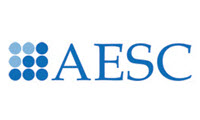There are three developments that have had me thinking recently about the role of lawyers in democracies, and whether we should be worried about the fact there may be less lawyers around in future.
The first two are long term trends; the rise of Artificial Intelligence or “AI”, and the threat to journalism created by the rise of the internet. The third is a recent event; the election of President Trump alongside a Republican-controlled Senate and Congress. You may be wondering how these three developments can be linked to the coming decline in the number of lawyers. I will go on to explain.
Lawyers are not always the most popular of professionals, particularly in countries where they have enabled the creation of a lawsuit “industry”. But it is important to remember that throughout history lawyers were usually the prime movers and architects of democratic and constitutional reform. Lawyers like Thomas Jefferson drafted the US constitution. They filled the seats of early parliaments and slowly but surely began to restrain the power of the Executive; initially monarchs but later Presidents.
Perhaps most important of all, they filled the ranks of the judiciary, the ultimate check on tyrannical executive power. The judiciary held, and hold, the Executive arm of government accountable to comply with the law and the rights of citizens. In modern times the media have comprised the 4th Estate, another check on power through investigating and exposing abuses of executive power.
But the 4th Estate is under attack like never before. The internet has destroyed the traditional media business model. Social media such as Twitter have allowed politicians to create “Alternative Facts”, muddying the waters to such a degree that the populace find it hard to seperate fact from fiction. Journalism feels like a dying profession; exit the 4th Estate as a check on power.
(The original 1st Estate, the Church, has long ago lost any power it may have had in Western democracies to restrain tyrants or even influence the majority of public opinion.)
Which leaves the judiciary as increasingly the sole remaining check on the abuse of Executive power in Western democracies. Witness the frenzied resistance by Republicans to block President Obama’s attempt to fill the ninth seat on the US Supreme Court, which would have tilted the Court to majority liberal. President Trump is now free to appoint that Justice; ensuring a conservative, Republican-friendly Court.
But what does all this have to do with the rise of AI? Well, increasingly we are being told professions like the law will be hugely impacted. Large parts of the lawyer’s role will be carried out by AI. This means less lawyers; a lot less. Law firms will shrink in size, in particular taking on far less graduates. This will mean less lawyers coming through to partnership or the senior levels of the public sector.
Where does the judiciary traditionally draw it judges from? Law firms, (in some countries the independent Bar) and the public sector. In future this pool is going to be dramatically diminished. The result of that? Less judges, possibly poorer quality judges and eventually maybe even robo-judges?
The rise of AI, inevitable as it seems, will undoubtedly impact the job market in an unprecedented way, disrupting and perhaps even destroying whole industries and professions. But it may also have as yet unanticipated, and more profound, effects on our democracy, basic freedoms we take for granted and indeed our very way of life.
Stephen Leavy
Partner, Hobson Leavy








